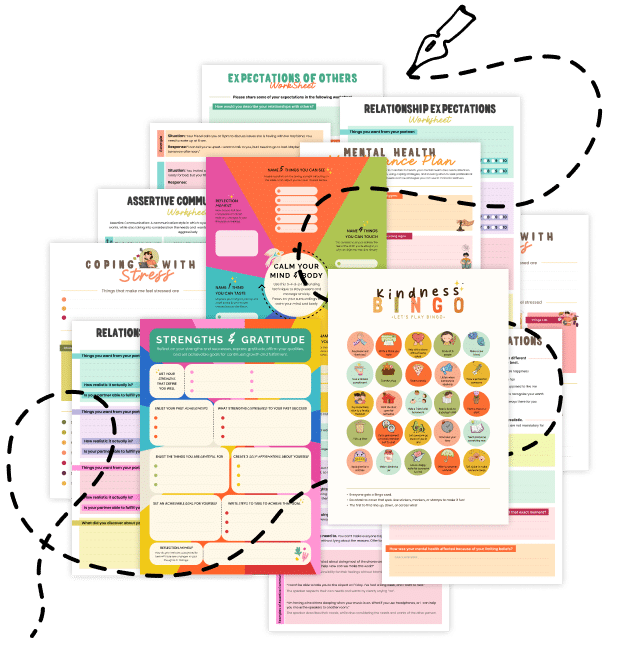20 Things You Should Know About Inattentional Blindness
Learn about inattentional blindness and discover how and why we sometimes miss the obvious—even when it’s right in front of us—and learn simple strategies to stay aware of crucial details in your environment.
1. What Is Inattentional Blindness?
Inattentional Blindness is a psychological phenomenon where you fail to notice an unexpected event or object in your visual field because your attention is focused elsewhere. Essentially, your mind is so busy with one thing that it filters out other information.
2. Not Just About Stress
While stress can contribute, you don’t need to be in a high-pressure situation to experience Inattentional Blindness. Even everyday distractions—like checking your phone while walking—can make you overlook what’s right next to you.
3. The Famous “Gorilla Experiment”
A classic study had participants count basketball passes among players. Half missed a person in a gorilla suit walking through the scene. This experiment became the poster child for how our attention can tune out the obvious.
4. Your Brain’s Limited Capacity
We often believe we can notice everything in our surroundings, but our brains have finite processing power. Focusing on one task automatically reduces our ability to see unrelated elements.
5. Real-World Consequences
Pilots have overlooked crucial controls during emergencies. Drivers may fail to spot pedestrians. Inattentional Blindness can have serious safety implications, making awareness training vital in certain jobs.
6. Role of Expectations
If you don’t expect something to appear, your brain is less likely to detect it. That’s why sudden or unusual events can go unnoticed, even if they’re occurring in plain sight.
7. Different from Change Blindness
Change Blindness is failing to notice a difference in a scene over time. Inattentional Blindness is missing something entirely because your focus is elsewhere. Both highlight how selective our attention can be.
8. Individual Factors
Certain personality traits—like high impulsivity or excessive anxiety—can increase susceptibility. However, even calm, methodical people can experience Inattentional Blindness when they’re deeply engaged in a task.
9. Impact of Multitasking
Juggling multiple activities splits your attention. Each additional task raises the likelihood of missing unexpected events. Think twice before scrolling through your phone while crossing the street!
10. “Tunnel Vision” vs. Inattentional Blindness
Tunnel Vision often happens in high-stress scenarios, forcing your focus onto a threat or urgent task. Inattentional Blindness can occur in routine situations, simply because your attention is locked onto something else.
11. Why It Feels Surprising
After the fact, you might think, “How could I miss that?” It’s unsettling because we trust our senses to capture everything, yet our attention functions more like a spotlight, illuminating only specific areas.
12. The Cost of Expertise
Experts sometimes suffer “expert blindness,” where deep familiarity with a task makes them overlook simple details. Their brains automatically filter out anything that seems routine or unimportant.
13. Training Your Attention
Air traffic controllers, military personnel, and medical professionals often undergo simulations to minimize Inattentional Blindness. Repetition trains the brain to stay alert for unexpected cues.
14. Emotional Overlay
Strong emotions—positive or negative—can further narrow your focus. When you’re overly excited or anxious, your attention tends to lock onto the object of emotion, excluding other information.
15. Technology-Driven Blinders
Constant notifications and screen time can exacerbate Inattentional Blindness. Even a quick glance at your phone can cause you to miss something important happening in your immediate surroundings.
16. Social Implications
Think of group settings where everyone is absorbed in their own device or conversation. Critical nonverbal cues (like someone feeling distressed) can go unnoticed because collective attention is elsewhere.
17. Importance of Mindful Observation
Consciously widening your awareness—looking around, taking in your surroundings—can help counteract Inattentional Blindness. Simple mindfulness exercises train you to notice details you’d typically miss.
18. Recognizing It in Yourself
If you find you’re often surprised by things that “suddenly” appear or by changes you missed, you might be experiencing frequent Inattentional Blindness. Awareness is the first step toward improvement.
19. When It’s Actually Helpful
Sometimes, filtering out distractions can be advantageous—like focusing on a crucial presentation. But the trick is learning to switch between intense focus and broader awareness as needed.
20. Related Topics to Explore
- Directed Attention Fatigue: How mental fatigue reduces the ability to pay attention.
- Perceptual Narrowing: A close cousin, where stress locks attention onto limited cues.
- Sensory Gating: The brain’s mechanism for filtering out redundant or unnecessary stimuli.
- Internal vs. External Focus of Attention: Balancing what’s happening inside your head vs. the outside world.
- Inference Blindness: Overlooking key information when drawing conclusions too quickly.
Quick Tips to Manage Inattentional Blindness
- Practice Active Scanning: Periodically look away from your main focus to scan your surroundings.
- Limit Distractions: Turn off unneeded notifications or find a quiet space to do critical tasks.
- Use Checklists: Pilots and doctors use them for a reason—structured reviews minimize oversight.
- Stay Mindful: Incorporate short mindfulness breaks to reset and broaden your awareness.
- Get Feedback: Ask others if you’re missing details. Outside perspectives catch blind spots your own mind filters out.
Inattentional Blindness is a compelling reminder that our perception is selective and finite. By understanding how it works and practicing strategies to counteract it, you’ll be better equipped to catch subtle cues, avoid errors, and enrich your daily experiences. Share this post with friends or colleagues—help them see the unseen and stay alert to what really matters!

